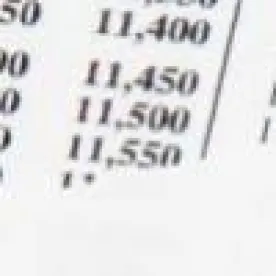Taxpayers value confidentiality, particularly if there is a dispute with the IRS that involves highly-sensitive trade secrets or other confidential information. Not surprisingly, complex tax litigation often raises the question of what confidential information has to be “made public”—through discovery responses or the introduction of exhibits or testimony in a deposition or at trial—so that a taxpayer can dispute IRS adjustments in court if administrative efforts to resolve the case are not successful. Fortunately, the Tax Court tends to protect highly-sensitive trade secrets or other confidential information from public disclosure even when the judge must review the information to decide the case.
In the Tax Court, the general rule is that all evidence received by the Tax Court, including transcripts of hearings, are public records and available for public inspection. See Internal Revenue Code (Code) Section 7461(a). Code Section 7458 also provides that “[h]earings before the Tax Court . . . shall be open to the public.” Code Section 7461(b), however, provides several important exceptions. First, the court is afforded the flexibility to take any action “which is necessary to prevent the disclosure of trade secrets or other confidential information, including [placing items] under seal to be opened only as directed by the court.” Second, after a decision of the court becomes final, the court may, upon a party’s motion, allow a party to withdraw the original records and other materials introduced into evidence. In our experience, the trend appears to be erring on the side of protecting information from disclosure.
The Tax Court’s Rules of Practice and Procedure (T.C. Rules) also provide very important protections for trade secrets and confidential information that becomes part of a court case. For example, T.C. Rule 27(a) instructs both parties and nonparties to redact and refrain from including taxpayer identification numbers, dates of birth, names of minor children and financial account numbers in documents submitted to the court.
Similarly, T.C. Rule 27(b) places limits on the ability to obtain electronic files and other information remotely. Although the parties and their counsel may have remote access to any part of the case file maintained by the court in electronic form, non-parties have remote access only to the docket record, opinions, orders or decisions of the court.
T.C. Rule 27(d) allows the court to issue protective orders that require redaction of additional information and issue protective orders. T.C. Rule 103(a) also affords the court wide latitude to fashion appropriate protective orders. Specifically, the court “may make any order which justice requires to protect a party [or non-party] from annoyance, embarrassment, oppression, or undue burden or expense.” This Rule includes a non-exhaustive list of appropriate orders, including that certain matters not be inquired into; that a deposition or other written materials, after being sealed, be opened only by order of the court; that specified documents or information is simultaneously filed in sealed envelopes to be opened only as directed by the court; and that a trade secret or other information may not be disclosed or be disclosed only in a designated way.
T.C. Rule 103(a) resembles Rule 26(c)(1) of the Federal Rules of Civil Procedure (FRCP). The Tax Court generally follows decisions interpreting FRCP Rule 26 when considering requests for protective orders. In general, decisions interpreting FRCP Rule 26 have found that a protective order is appropriate when the material is of a type that courts typically protect and the requesting party has shown “good cause” for protecting it. It is commonplace for courts to protect sensitive business and financial information. Recently, for example, the Tax Court has issued protective orders in cases to ensure the confidentiality of proprietary business information and intellectual property that has been the subject of Code Section 482 transfer pricing disputes.
There are, of course, constitutional considerations concerning the public’s right to access for judicial proceedings. In certain newsworthy cases, the press may try to intervene in a case to learn more about the case. The Tax Court has held that the press’s interests are the same as the public’s interests—interests that the court has found are powerfully represented by the IRS. In our experience, the court typically prefers redaction over sealing an entire record. This approach balances the taxpayer’s right to retain confidentiality over its business interests, and the public’s right to transparent judicial proceedings.
Practice Point: The IRS is increasingly asking for proprietary trade secrets and confidential business records. Before handing over any document to the government, a thorough analysis of the ramifications of disclosure should be performed. This analysis is exceedingly important to commission during the audit where the taxpayer does not have the court to seek refuge from IRS requests for information.




 />i
/>i

